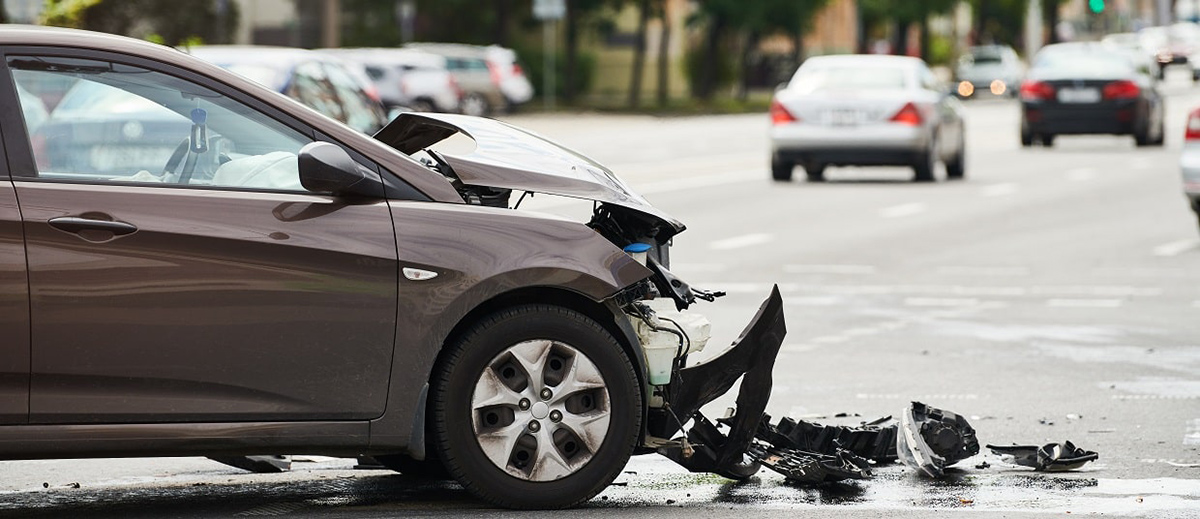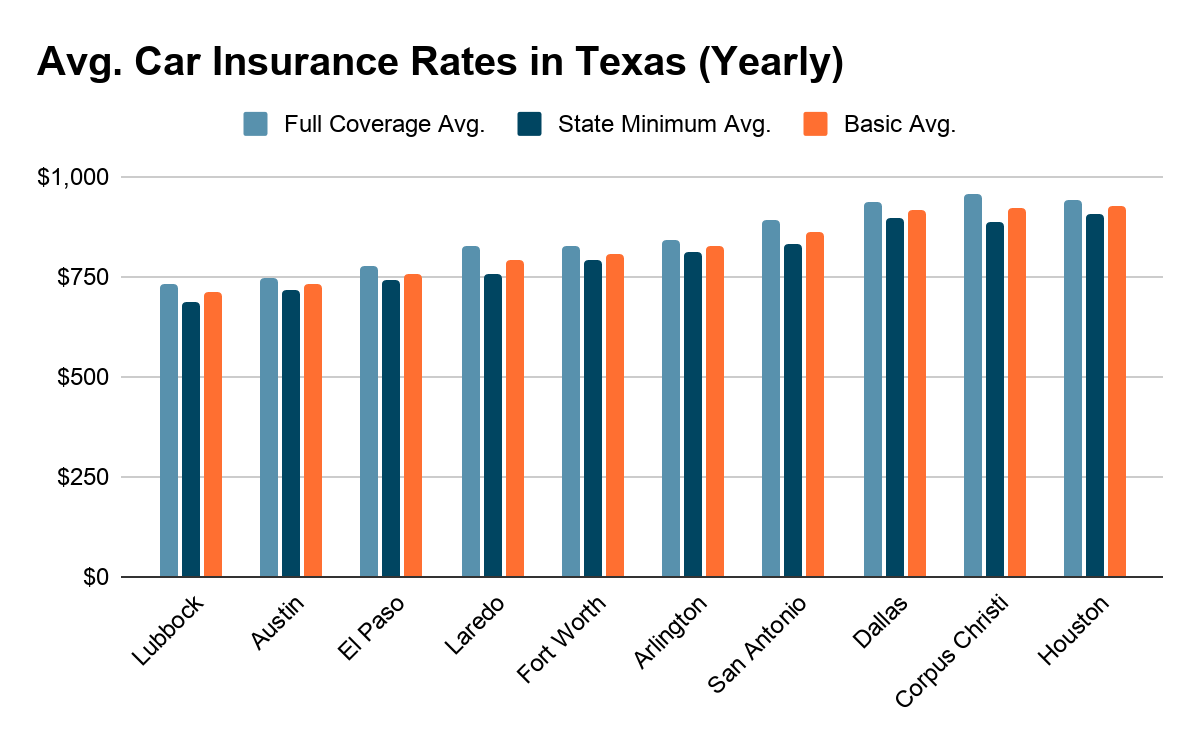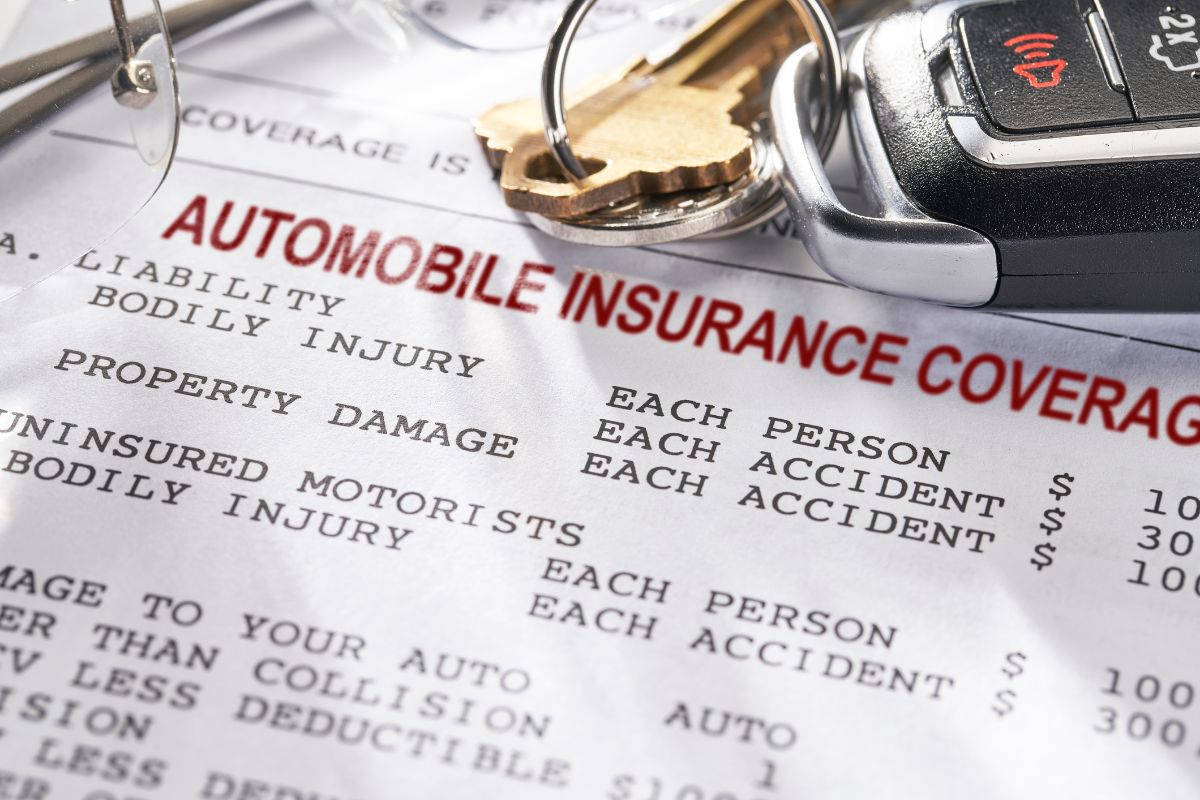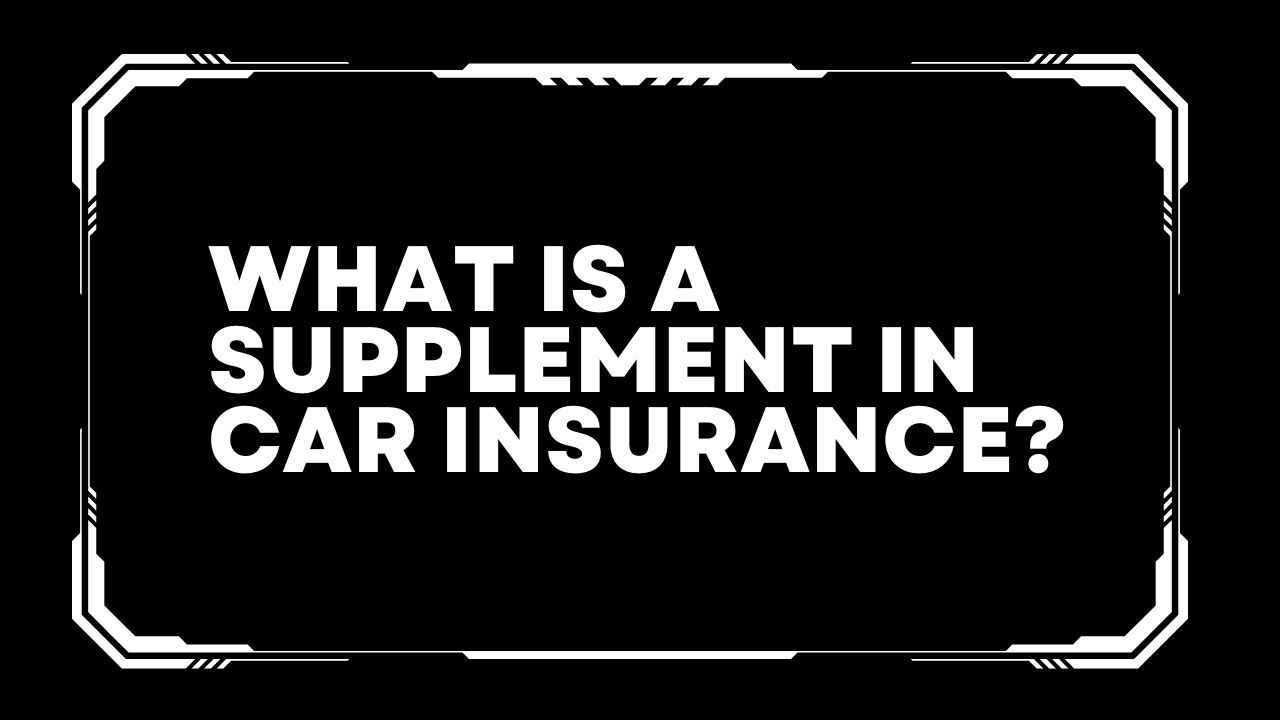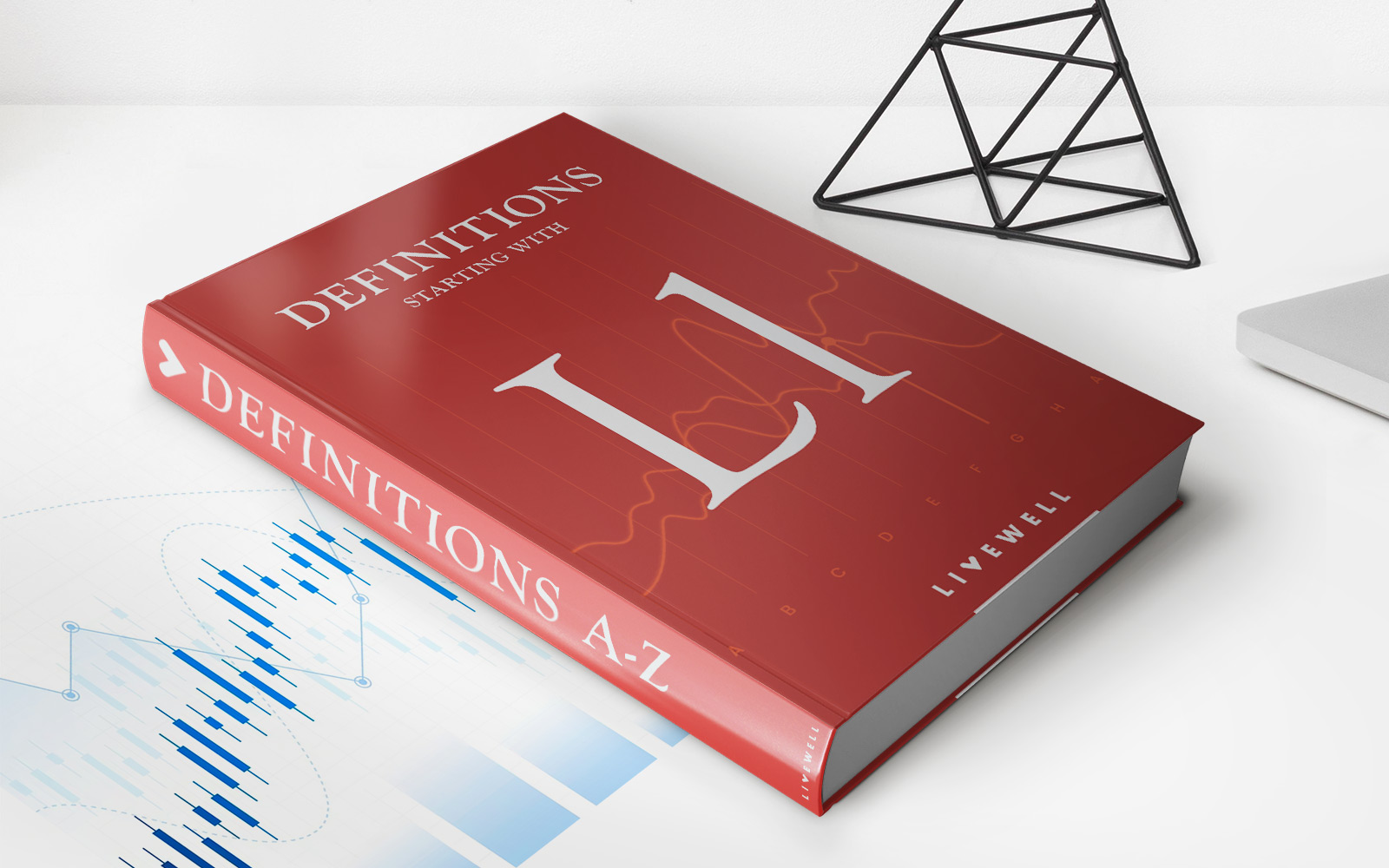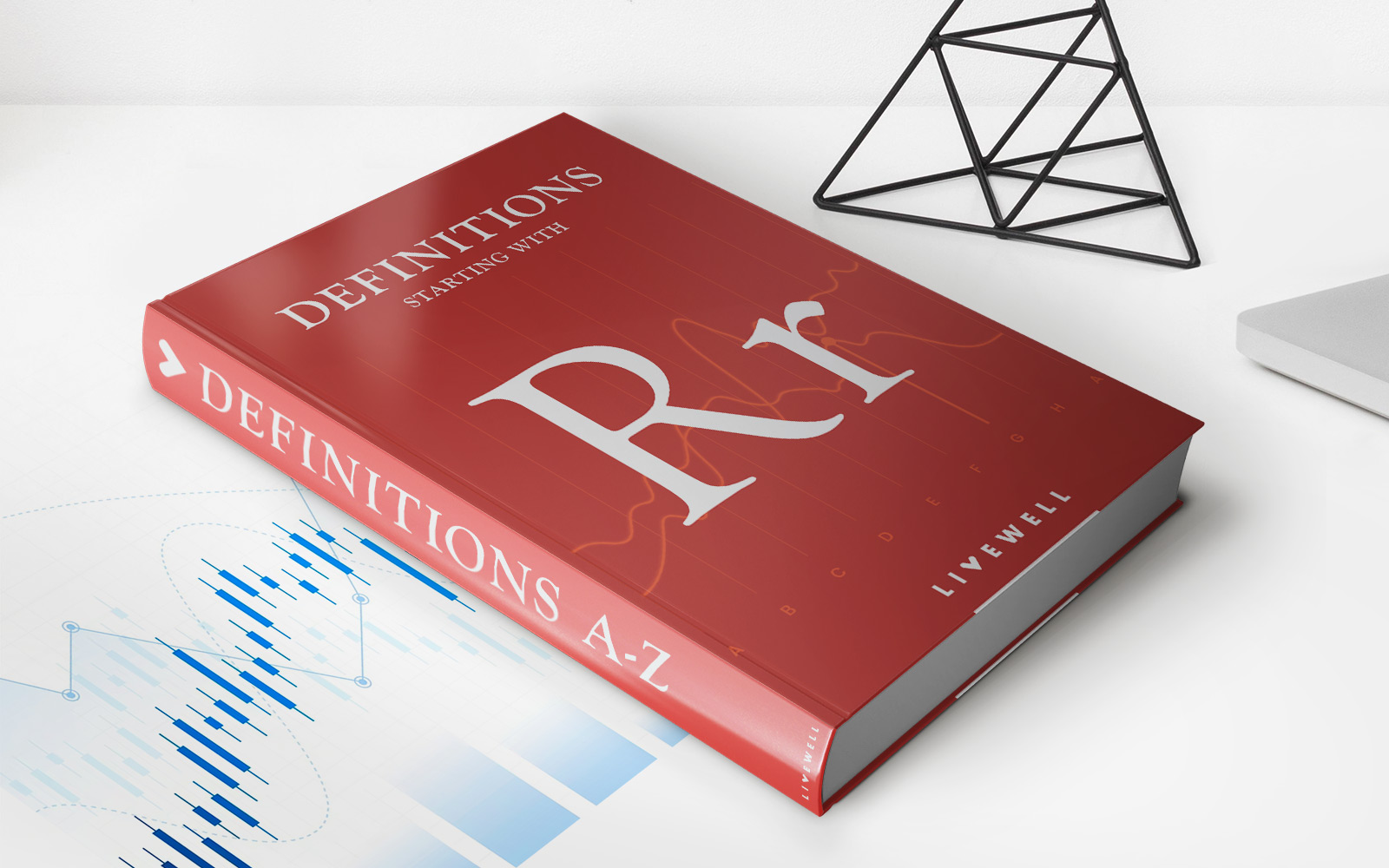Home>Finance>What Are The Minimum Requirements For Auto Insurance In Texas?


Finance
What Are The Minimum Requirements For Auto Insurance In Texas?
Published: November 18, 2023
Looking for auto insurance in Texas? Find out the minimum requirements and secure your finance with the right coverage.
(Many of the links in this article redirect to a specific reviewed product. Your purchase of these products through affiliate links helps to generate commission for LiveWell, at no extra cost. Learn more)
Table of Contents
Introduction
Auto insurance is a critical component of responsible car ownership, offering financial protection in the event of accidents, theft, or damage. Each state has its own minimum requirements for auto insurance coverage, and Texas is no exception.
Living in the Lone Star State means abiding by the minimum insurance requirements set forth by the Texas Department of Insurance (TDI). It’s important to understand these requirements to ensure that you have the necessary coverage and comply with the law.
Accidents happen, and without adequate insurance coverage, you may be exposed to hefty financial liabilities. Understanding the minimum requirements for auto insurance can help protect yourself and your assets from potential losses.
In this article, we will delve into the minimum requirements for auto insurance in Texas. We will explore the different types of coverage mandated by the state, as well as additional optional coverages to consider.
Whether you’re a new driver or a long-time Texas resident, having a solid understanding of the minimum insurance requirements will help you make informed decisions when it comes to protecting yourself and your vehicle on the road.
Liability Coverage
Liability coverage is a fundamental component of auto insurance that provides financial protection for damages or injuries you may cause to others while operating your vehicle. In Texas, liability coverage is mandatory and serves to protect both the driver and other parties involved in an accident.
There are two main types of liability coverage:
- Bodily Injury Liability: This coverage helps pay for medical expenses, rehabilitation costs, and related expenses for individuals injured in an accident you are deemed at fault for. It also covers legal fees if you are sued for the accident.
- Property Damage Liability: This coverage pays for damages to another person’s property, such as their vehicle, fence, or any other property that may have been damaged in the accident you caused.
Liability coverage is essential because if you are found at fault in an accident, you could be held personally responsible for the medical bills, vehicle repairs, and other expenses incurred by the other affected parties.
It’s important to note that liability coverage does not provide any protection for your own vehicle repairs or medical expenses. To cover your own costs in case of an accident, you may need additional coverage like collision or comprehensive insurance, which will be discussed later in this article.
When it comes to liability coverage in Texas, the minimum requirements set by the state are:
- $30,000 bodily injury liability coverage per person
- $60,000 bodily injury liability coverage per accident
- $25,000 property damage liability coverage per accident
It’s important to remember that these are just the minimum requirements, and it is often recommended to consider higher coverage limits to ensure that you are adequately protected in the event of a severe accident that exceeds these limits.
Now that we understand the importance of liability coverage and the minimum requirements set by Texas, let’s dive into another mandatory coverage called Personal Injury Protection (PIP).
Bodily Injury Liability
Bodily injury liability coverage is an essential element of auto insurance that protects you financially in the event that you cause an accident resulting in injuries to others. This coverage helps cover medical expenses, rehabilitation costs, and related expenses for the injured parties.
When it comes to bodily injury liability coverage in Texas, the minimum requirements set by the state are $30,000 per person and $60,000 per accident. This means that if you are found at fault in an accident and the other party sustains injuries, your insurance coverage will cover up to $30,000 for each individual injured, with a maximum total coverage of $60,000 for the entire accident.
It’s important to note that these are just the minimum requirements, and it’s highly recommended to consider higher limits of bodily injury liability coverage. Severe accidents can result in significant medical expenses and long-term rehabilitation costs, which can quickly exceed the minimum coverage limits. By opting for higher limits, you can ensure that you have adequate protection and avoid potential out-of-pocket expenses.
It’s also vital to understand that bodily injury liability coverage not only provides financial protection for the injured parties but also covers your legal defense fees in case you are sued for the accident. Legal fees can add up quickly, so having adequate coverage can save you from a significant financial burden.
When selecting your bodily injury liability coverage, it’s essential to consider your personal financial situation. Higher coverage limits may come with slightly higher premium costs, but they offer greater peace of mind and protection in case of a severe accident.
Remember, bodily injury liability coverage is designed to protect you and your assets in case of an accident. It is a crucial component of your auto insurance policy and should not be overlooked when determining the appropriate coverage for your needs. Understanding the minimum requirements set by Texas and considering higher coverage limits will help ensure that you have adequate protection for potential bodily injury expenses resulting from an accident you cause.
Property Damage Liability
Property damage liability coverage is a crucial component of auto insurance that provides financial protection in the event that you cause damage to someone else’s property. This coverage helps cover the costs of repairing or replacing the damaged property, such as vehicles, fences, buildings, or any other structures.
In Texas, property damage liability coverage is mandatory, and the state has set a minimum requirement of $25,000 per accident. This means that if you are found at fault in an accident and damage someone else’s property, your insurance coverage will pay up to $25,000 to cover the costs of repairing or replacing the damaged property.
While this minimum requirement is set by the state, it’s important to evaluate your personal needs and the value of the property you may encounter in an accident. Repairing or replacing a high-end vehicle or expensive property can quickly surpass the minimum coverage limits. Therefore, it’s advisable to consider higher limits for property damage liability coverage to ensure you have adequate protection in case of a significant accident.
Higher coverage limits for property damage liability may come with slightly higher premium costs. However, in choosing higher limits, you can have peace of mind knowing that you won’t be left with significant out-of-pocket expenses if you cause damage to someone’s property.
It’s important to remember that property damage liability coverage only pays for damages to other people’s property and does not cover your own vehicle or property. To protect your own vehicle, you may need additional coverage such as collision or comprehensive insurance, which will be discussed later in this article.
Properly evaluating your property damage liability coverage is crucial to ensure that you have sufficient protection in case of an accident. By understanding the minimum requirements set by Texas and considering your personal circumstances, you can make informed decisions about the appropriate coverage limits for your needs.
Next, we will explore another important coverage mandated by the state of Texas: Personal Injury Protection (PIP).
Personal Injury Protection (PIP)
Personal Injury Protection (PIP) coverage is a type of auto insurance that provides benefits for medical expenses and other related costs resulting from injuries sustained in a car accident, regardless of who is at fault. In Texas, PIP coverage is not mandatory but is offered as an optional coverage.
PIP coverage is designed to offer additional protection beyond the minimum liability coverage requirements. It can help cover medical expenses, lost wages, and even funeral expenses resulting from an accident, regardless of fault. PIP coverage is often referred to as “no-fault” coverage because it pays out benefits regardless of who caused the accident.
If you opt for PIP coverage as part of your auto insurance policy, it will provide benefits for you and your passengers in the event of an accident. It can help cover medical expenses, such as doctor visits, hospital stays, surgeries, and rehabilitation costs. PIP coverage can also provide income replacement if you are unable to work due to injuries sustained in the accident.
Keep in mind that the specific benefits and coverage limits offered by PIP can vary depending on your insurance provider and policy. It’s important to review the terms and conditions of your policy to understand the extent of the coverage and any limitations or exclusions that may apply.
While PIP coverage is not mandatory in Texas, it can be a valuable addition to your auto insurance policy. It offers additional financial protection and peace of mind, especially when medical expenses and lost wages can quickly accumulate after an accident.
However, it’s important to note that if you have health insurance that covers car accident injuries or other forms of medical coverage, you may want to consider whether the benefits provided by PIP coverage are duplicating existing coverage. In such cases, it may not be necessary to elect PIP coverage or to include it with high coverage limits.
Ultimately, the decision to include PIP coverage in your auto insurance policy should be based on your individual circumstances, financial situation, and risk tolerance. It’s advisable to consult with your insurance provider to determine the appropriate coverage that meets your needs.
Next, we will explore another critical aspect of auto insurance: uninsured/underinsured motorist coverage.
Uninsured/Underinsured Motorist Coverage
Uninsured/underinsured motorist (UM/UIM) coverage is a type of auto insurance that protects you in the event of an accident involving a driver who does not have sufficient insurance coverage or no insurance at all. This coverage helps cover expenses related to injuries and damages if the at-fault driver cannot adequately compensate you.
In Texas, UM/UIM coverage is not mandatory but is highly recommended. It provides an additional layer of protection beyond the minimum liability coverage requirements. Accidents involving uninsured or underinsured drivers can leave victims with significant financial burdens, and UM/UIM coverage is designed to bridge that gap.
If you are involved in an accident caused by an uninsured or underinsured driver, UM/UIM coverage can help cover medical expenses, lost wages, and even property damage. It ensures that you are not left paying for these expenses out of your own pocket.
It’s important to note that UM/UIM coverage typically has its own coverage limits, which may be separate from your liability coverage limits. These limits determine the maximum amount your insurance company will pay in the event of an accident with an uninsured or underinsured driver.
When determining the appropriate limits for UM/UIM coverage, consider evaluating the potential risks of encountering uninsured or underinsured drivers in your area. It’s also important to review your existing liability coverage and ensure that your UM/UIM coverage adequately complements it.
While state requirements for UM/UIM coverage may vary, it’s generally recommended to have sufficient coverage to protect yourself in case of an accident with an uninsured or underinsured driver. Discussing your options with your insurance provider will help you determine the appropriate coverage that meets your needs.
Protecting yourself against uninsured or underinsured drivers is crucial to avoid potential financial difficulties and ensure that you have the necessary resources to recover from an accident. Having UM/UIM coverage provides added peace of mind and helps safeguard you and your vehicle in the event of such unfortunate situations.
Now that we have explored the different mandatory coverages in Texas, let’s discuss the minimum auto insurance requirements set by the state.
Minimum Auto Insurance Requirements in Texas
In Texas, drivers are required to carry a minimum level of auto insurance coverage to comply with state laws. These minimum requirements are set by the Texas Department of Insurance (TDI) and aim to ensure that drivers have the necessary financial protection in case of accidents. It’s important to understand and abide by these requirements to avoid penalties and legal consequences.
The minimum auto insurance requirements in Texas include:
- 30/60/25 Bodily Injury and Property Damage Liability: This means drivers must have at least $30,000 in bodily injury liability coverage per person, $60,000 in bodily injury liability coverage per accident, and $25,000 in property damage liability coverage per accident. This coverage helps pay for injuries or damages caused to others in an accident.
These minimum coverage limits serve as a baseline requirement, and it’s worth noting that they may not provide adequate protection in case of severe accidents. It’s often recommended to consider higher coverage limits to ensure you have sufficient financial protection and avoid potential out-of-pocket expenses.
It’s also worth mentioning that carrying only the minimum required coverage may not be enough to fully protect yourself and your assets. Additional coverages, such as personal injury protection (PIP), uninsured/underinsured motorist coverage, collision, and comprehensive insurance, can provide enhanced protection and greater peace of mind.
As responsible drivers, it is essential to review and understand your auto insurance policy to confirm that you meet the minimum requirements set by Texas law. Failure to have proper insurance coverage can result in penalties, fines, and even the suspension of your driving privileges.
It’s also worth noting that auto insurance rates can vary depending on factors such as your driving record, age, location, and the type of vehicle you drive. Shopping around for different insurance providers and comparing quotes can help you find the most affordable coverage that meets your needs while complying with the state’s minimum requirements.
Remember, auto insurance is not just a legal requirement; it is a financial safety net that protects you, your passengers, and other drivers on the road. Understanding and maintaining the minimum auto insurance requirements in Texas helps ensure that you are financially prepared in case of an accident.
Now, let’s explore some optional coverages that you may consider adding to your auto insurance policy to enhance your protection.
Optional Coverages
While the state of Texas mandates certain minimum auto insurance requirements, there are additional optional coverages that you may consider adding to your policy to enhance your overall protection. These optional coverages provide additional layers of financial security, ensuring that you have comprehensive coverage that meets your specific needs and preferences.
Here are some optional coverages you may want to consider:
- Collision Coverage: Collision coverage helps pay for damages to your vehicle caused by a collision with another vehicle or object, regardless of who is at fault. This coverage is important if you want to protect your vehicle against expensive repair costs or replace it if it’s deemed a total loss.
- Comprehensive Coverage: Comprehensive coverage provides protection for damages to your vehicle that are not caused by a collision. This includes damage from theft, vandalism, natural disasters, falling objects, or hitting an animal. If you want to safeguard your vehicle against non-collision incidents, comprehensive coverage is vital.
- Medical Payments Coverage: Medical payments coverage, also known as MedPay, helps pay for medical expenses resulting from an accident, regardless of fault. It can help cover costs such as ambulance rides, hospitalization, surgeries, and even funeral expenses. MedPay can be especially valuable if you don’t have health insurance or have limited coverage.
- Rental Reimbursement Coverage: Rental reimbursement coverage provides coverage for the cost of a rental car while your vehicle is being repaired due to a covered claim. This coverage can be helpful to ensure that you have means of transportation while your car is out of commission.
- Gap Insurance: If you owe more on your vehicle loan or lease than your car is worth, gap insurance can provide coverage for the “gap” between what you owe and the actual cash value of your vehicle. It can be beneficial if your vehicle is stolen or deemed a total loss in an accident.
These are just a few examples of optional coverages you can add to your auto insurance policy. It’s important to assess your individual needs, financial situation, and risk tolerance when deciding which optional coverages to include.
Talking to your insurance provider or agent can help you understand the available coverages, their costs, and the impact they may have on your overall premium. They can guide you in selecting the right combination of coverages that provide the level of protection you desire.
Remember, while these optional coverages come at an additional cost, they can provide valuable peace of mind and financial protection against unforeseen incidents. Evaluating your needs and selecting the right optional coverages can ensure that you have comprehensive auto insurance coverage tailored to your specific requirements.
Now, let’s wrap up our discussion.
Conclusion
Understanding the minimum requirements for auto insurance in Texas is crucial for maintaining compliance with state laws and protecting yourself financially in the event of an accident. While the state sets certain minimum coverage limits, it’s important to evaluate your individual needs and consider additional coverages to enhance your overall protection on the road.
Liability coverage, including bodily injury liability and property damage liability, is mandatory in Texas and provides financial protection for injuries and property damages caused to others. Personal Injury Protection (PIP) coverage, although optional, can offer additional benefits for medical expenses and lost wages resulting from an accident.
Uninsured/underinsured motorist coverage is highly recommended, as it provides protection in case of accidents involving drivers who do not have sufficient insurance coverage. This coverage helps bridge the gap and ensures that you are adequately compensated for injuries and damages caused by uninsured or underinsured drivers.
It’s important to remember that the minimum requirements for auto insurance may not provide sufficient coverage for all situations. Optional coverages such as collision coverage, comprehensive coverage, medical payments coverage, rental reimbursement coverage, and gap insurance can provide additional layers of protection tailored to your specific needs.
When determining the appropriate coverage limits and adding optional coverages, it’s essential to consider factors such as your financial situation, risk tolerance, and the value of your assets. Consulting with your insurance provider or agent can help you make informed decisions about the optimal coverage to protect yourself and your vehicle on the road.
Auto insurance is more than just a legal obligation; it is a financial safeguard that offers peace of mind knowing that you are protected in case of accidents and unforeseen circumstances. By understanding the minimum requirements and exploring the optional coverages available to you, you can create a comprehensive auto insurance policy that provides the necessary protection and suits your unique needs and preferences.
So, take the time to review your insurance policy, consider your options, and ensure that you have the appropriate coverage to drive with confidence and peace of mind on the roads of Texas.
